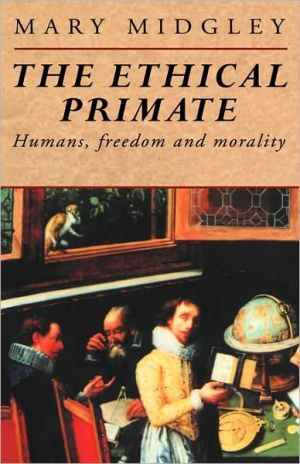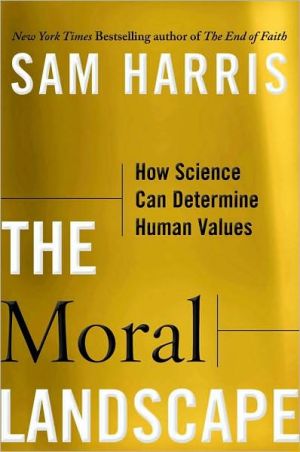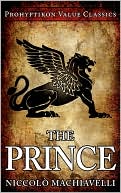The Ethical Primate: Humans, Freedom, and Morality
In The Ethical Primate, renowned philosopher Mary Midgley tackles important questions about human freedom and morality. Scientists and philosophers have found it difficult to understand how each human being can be both a living part of the natural world and, at the same time, a genuinely free agent. Midgley explores their responses to this seeming paradox and argues that our evolutionary origin, properly understood, explains why human freedom and morality have come about.\ Midgley shows that...
Search in google:
In The Ethical Primate, Mary Midgley, 'one of the sharpest critical pens in the West' according to the Times Literary Supplement, addresses the fundamental question of human freedom. Scientists and philosophers have found it difficult to understand how each human-being can be a living part of the natural world and still be free. Midgley explores their responses to this seeming paradox and argues that our evolutionary origin explains both why and how human freedom and morality have come about. Library Journal Midgley (Can't We Make Moral Judgments, St. Martin's, 1994) aims at making evolutionary sense of human freedom and our capacity for morality. She analyzes and rejects as "folk psychology" the reductivism that dismisses the concepts with which we normally live. She claims that, because reductivists ignore the first-person view of agency, they cannot understand human freedom, and she therefore proposes a nonreductive pattern of explanation that enables her to bring together objective and subjective points of view. Midgley contends that morality is a response to natural conflicts of motive, emphasizing that we are far more aware than other animals of our own individuality and, unlike them, not only act but recognize the actions of others as actions. Clearly written and well argued, this commonsensical book will be profitable reading for anyone with a serious interest in ethical ideas and their application. Recommended for academic and public libraries.-Robert Hoffman, York Coll., CUNY
Acknowledgements1Inner Divisions32Misguided Debates133Guiding Visions274Hopes of Simplicity435Crusades, Legitimate and Otherwise526Convergent Explanations and Their Uses637Troubles of the Linear Pattern718Fatalism and Predictability809Agency and Ethics9510Modern Myths10911The Strength of Individualism12112The Retreat from the Natural World12813How Far Does Sociability Take Us?13614The Uses of Sympathy14115On Being Terrestrial15716What Kind of Beings Are Free?16917Minds Resist Streamlining177Notes185Index192
\ Library JournalMidgley (Can't We Make Moral Judgments, St. Martin's, 1994) aims at making evolutionary sense of human freedom and our capacity for morality. She analyzes and rejects as "folk psychology" the reductivism that dismisses the concepts with which we normally live. She claims that, because reductivists ignore the first-person view of agency, they cannot understand human freedom, and she therefore proposes a nonreductive pattern of explanation that enables her to bring together objective and subjective points of view. Midgley contends that morality is a response to natural conflicts of motive, emphasizing that we are far more aware than other animals of our own individuality and, unlike them, not only act but recognize the actions of others as actions. Clearly written and well argued, this commonsensical book will be profitable reading for anyone with a serious interest in ethical ideas and their application. Recommended for academic and public libraries.-Robert Hoffman, York Coll., CUNY\ \








